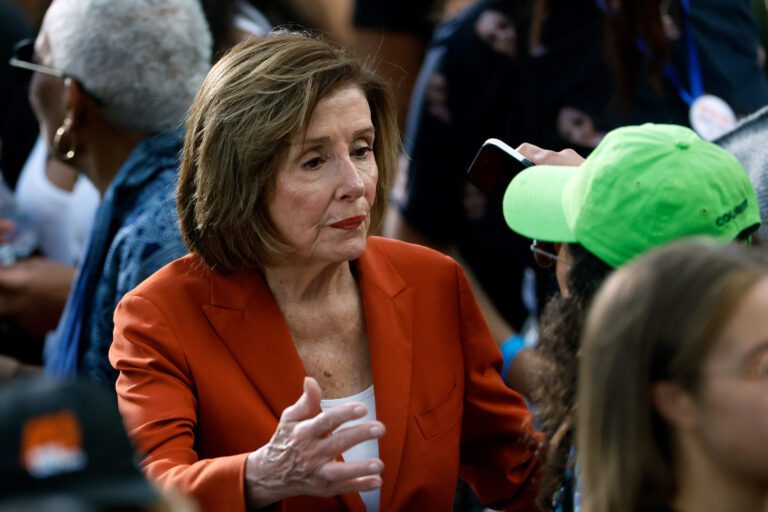Congressional Stock Trading Ban: A Bipartisan Push for Reform
In an unprecedented bipartisan effort, a Senate committee has approved a bill aimed at prohibiting lawmakers from trading individual stocks. This measure, known as the HONEST Act (previously the Ban Congressional Stock Trading Act), could significantly influence how Congress handles conflicts of interest and fosters public trust.
Key Provisions of the HONEST Act
The legislation, which advanced through the Senate Homeland Security Committee with a 6-3 vote last month, includes the following key features:
- Prohibition on Stock Trading: The act would prevent lawmakers, their spouses, and dependent children from trading individual stocks while in office.
- Penalties for Violators: Offenders could face daily fines of $1,000 and be required to forfeit profits gained from prohibited trades.
This proposal has been met with substantial public support, reflecting widespread demand for greater accountability among elected officials.
Concerns Raised by Critics
Despite backing from many citizens, some experts caution against the potential repercussions of the HONEST Act:
-
Broad Ownership Bans: Opponents argue that the bill doesn’t just limit stock trades; it may also prevent lawmakers from owning shares in publicly traded and numerous private companies. This notion was articulated by John Berlau, Senior Fellow at the Competitive Enterprise Institute, who stated that the law could deter entrepreneurs from serving in Congress.
- Discouraging Qualified Candidates: Critics like Senator Rand Paul express concern that such restrictions could dissuade qualified individuals from pursuing public office, labeling the bill as a solution in search of a problem.
Counterarguments from Legal Experts
Some legal scholars believe the potential negative impacts of the ban may be overstated:
-
Deferred Taxation on Divested Assets: Richard Painter, a legal professor at the University of Minnesota, suggests that provisions could allow lawmakers to delay capital gains taxes on required stock sales, making it less burdensome to divest.
- Investment Options Remain: Dylan Hedtler-Gaudette from the Project on Government Oversight notes that Congress members would still have options for investing, but not in individual stocks directly controlled by them.
Blind Trusts: A Possible Middle Ground
Some legislators advocate for blind trusts as a way to manage conflicts of interest without requiring complete divestment. A blind trust allows assets to be overseen by an independent trustee, keeping lawmakers insulated from specific investment decisions. However, only a small fraction of current members opt for this, often due to complexity and costs.
The Historical Context: Why the STOCK Act Failed
The conversation around congressional stock trading is not new. The STOCK Act (Stop Trading on Congressional Knowledge) was passed in 2012 to prevent insider trading among lawmakers and improve financial transparency, requiring public disclosure of stock trades within 45 days.
Despite its intentions, enforcement has been inconsistent. Since 2020, over 100 lawmakers from both parties have received citations for violating the act, facing minimal penalties. This inconsistency highlights the need for stronger legislation, as noted by Hedtler-Gaudette, suggesting that new rules would enhance congressional accountability and public trust.
Balancing Ethics and Practicality
With public sentiment favoring a ban on individual stock trading, the need to balance ethical standards with the practicalities of governance is critical. Ilya Shapiro, Director of Constitutional Studies at the CATO Institute, emphasizes the importance of public perception, arguing that even the appearance of potential self-dealing can erode trust in government.
Controversies Surrounding the Current Bill
The HONEST Act is not without its controversies. A provision exempting the president and vice president from immediate compliance gives them until the start of their next term to divest conflicting investments. Critics assert this creates an unfair loophole, especially concerning former President Trump’s financial holdings. Supporters of the exemption argue it prevents unnecessary political discrimination.
The Road Ahead for the HONEST Act
Despite its passage through the Senate committee, the future of the HONEST Act remains uncertain. Speaker Mike Johnson has not committed to advancing the bill in the House, and concerns about oversights persist. The question of effective enforcement looms, with some members wary of handing over authority to the executive branch for ethical monitoring.
Moving Forward: Solutions and Insights
-
Mandatory Financial Penalties: Some experts suggest implementing strict financial penalties enforced by Congress to ensure compliance, given concerns about external oversight.
- Enhanced Transparency: Advocates also argue that heightened transparency could address many ethical concerns without imposing blanket restrictions.
In conclusion, as lawmakers deliberate on the HONEST Act, the pathway to ethical reform in Congress will depend on balancing public trust demands and practical governance realities. The outcome could redefine Congress’s approach to ethics and accountability, with the potential to reshape American politics for years to come.


